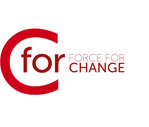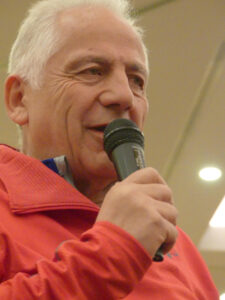Charlie Rose had a conversation/ interview, August 6, 2014, regarding the Palestinian perspective during the current outbreak of violence in Gaza. His guests were Nadia Blibassy-Charters, senior correspondent with Al-Arabija television; Khaled Elgindy, Fellow at Brooklyn Institution and former advisor to the Palestinian leadership; Rula Jebreal, television host and foreign policy analyst for Newsweek; Yousef Munayyer, Executive Director for the Jerusalem Fund and the Palestine Center. https://www.charlierose.com/watch/60428129
Recently, I also saw a short interview with Ari Shavit, the author of My Promised Land, The Triumph and Tragedy of Israel. Shavit is known for his position that Israel must acknowledge its responsibility and understand and empathize with the Palestinian position and their tragic situation, in order to find a way to work together to forge a two state solution, rather than seeing Palestinians as the enemy. During this recent round of violence in Israel and Gaza, however, he describes Hamas adamantly as fascist and gives full support for Israel’s position and actions.
In the Charlie Rose interviews about the Palestinian perspective, a particular point was emphasized. And I recognized this as a point also made by Ari Shavit.
The point is this: At times that we have had relative calm, when there’s been no violence, the peace process has lost its oomph. And so the status quo continued.
This may be self-evident, but it is a fundamentally important point, not only for Israel-Palestine, but for conflict resolution everywhere.
Khaled Elgindy said, ‘When there is calm and quiet, the Israelis tend to be complacent and America, as well – and so the Palestinians get ignored and the status quo continues. It’s only when violence occurs, unfortunately, that people stand up and say ‘yes, there is a blockade, yes there is an occupation’ “.
Arit Shavit said in his interview that he was upset and embarrassed that during the recent periods of relative calm, Israel and also the United States have not been more persistent in continuing negotiations, and the dialogue necessary to achieve a two state and lasting solution.
Various disagreements are bound to pop up here about the exact reasons for breakdowns in negotiations, including whether Palestinians want Israel to exist, or whether Israel wants Palestinians to have a state.
But the point is vital. If during the times that violence subsides, we relax the peace process, then we support the status quo. And supporting the status quo is a prescription for violence.
In the Charlie Rose interview, Nadia Blibassy spoke of how a whole generation born in Gaza cannot visit their relatives in Ramallah or Jerusalem, only 20 minutes away. She described Gaza as an open-air prison ‘Without exaggeration Gaza is a big jail’. In Israel, during the relative calm, during this status quo, people can (almost) forget about it, and go about life with relative ease and privilege. For Palestinians the situation is not the same – the status quo is unbearable. When the status quo is not so bad for some and unbearable for others, trying to tighten down, and hold onto the status quo will bring violence, not security.
The violence also activates across the media, within the international community, and around our dining room tables all the issues, emotions, history and entanglement – the stuff that needs to come forward to be worked on. The urgency is back. But, at no small cost, each life lost in this violent conflict is an unspeakable tragedy.
.
So what might we do, when (God willing) there is a lull in the violence? At least one answer is that during times of relative calm, we need the urgency and passion that we have during war, applied to the peace process. We need to urgently work towards a solution that will make life better for all, before the next round comes. This is the moment to not step back and rest.
The guests with Charlie Rose said that ending the occupation was the bottom line. Israel needs to ‘de-occupy’, and all parties need to negotiate a two state solution. From the Israeli perspective, missiles and tunnels, however, are not experienced as an invitation to open up borders, or ‘de-occupy’. Not to mention Hamas hasn’t accepted Israel’s existence?
The guest speakers on Charlie Rose said they believed Hamas’s position regarding Israel’s right to exist is a bargaining chip. They looked congruent in their certainty that Hamas will acknowledge Israel, because they have to. The Palestinian people want a two state solution, and this clearly includes Israel’s right to exist. Nadia Blibassy brought out the viewpoint that whatever your feeling about this, it is useful to consider that Hamas is making a strategic use of violence and extreme positioning for political aims, much like the ANC used in South Africa, or Sin Fein in Ireland.
With respect for the wide range of views and disagreement about this, we need all voices at the table, working together as partners to find a pathway forward.
Then comes the question of what can any of us do? If the peace process loses oomph when the violence stops, this concerns all of us – because it creates the next round of violence. It is all of us that influence the dialogue, media, and political process.
It would help if we were more aware of these dynamics, whether politicians, peace negotiators, the media, or any of us close up and at a distance. It would help to reflect on what makes us complacent, supporting the status quo, and subsequent violence? And what sets us off? What activates us, and what makes us susceptible to being drawn into opposing camps? And what makes us reflect, learn, think, feel into all sides, and take part in finding sustainable solutions, whether it is in political large-scale situations or in our community and private life?
The point is: our awareness matters. By awareness I mean how we inform ourselves. But also how we know ourselves, emotionally and spiritually – our reactions, how we take part, our personal and collective history, and recognizing that we make a difference by showing up at the table, ready to facilitate ourselves and others, towards finding a way forward.
Whether you think of this in relation to our part in the Israeli-Palestinian conflict, or any other hotspot on our globe, or whether you think of issues in your community, organisation, or in your home, one message is that when there’s relative calm, take a breath and consider it a time of great import to stay involved. The cost of waiting is too high.

